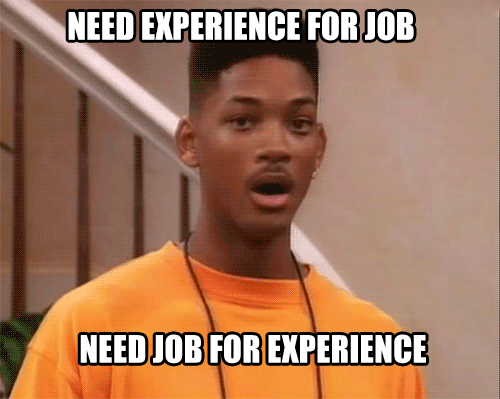Ways to survive 2017’s recession

Sometimes it feels as though school life and “adult” life are two entirely different worlds, which will never be able to cross paths. Personally, I felt like I’d never be able to join the latter, but we’re all thrown in there at some point of our lives. It’s okay to be nervous, ‘cause I felt like that too! However, we need to be prepared for what may come up next, so it’s important to stay calm and then work something out later
To make sure that your ship sails smoothly through even the toughest waters, we’re going to prepare you to withstand any economic crisis in Singapore.
1. Brush up on crucial soft skills

While it’s important to work hard and work smart, many people forget to brush up on necessary soft skills. In a world where a man as unpredictable as Donald Trump is president of America, it’s important to be able to have social skills that make you appear confident and calm in a high-pressure environment – even if you’re not! Even an appropriate and firm handshake can make the world of difference.
Practice in front of your friends, or even talk to yourself in front of a mirror. You can even put yourself in situations where you’ll be pushed out of your comfort zone. For example, if you’re shy, you can volunteer for local charities and put yourself in a position where you can talk to more people.
2. Look for a recession-proof job

In an ever-changing economy, we never know when the job market might crash. However, there are professions that will be demand even in the worst economic situations, such as lawyers and doctors. Another job where people are always in demand is in accounting.
Don’t worry: even if you studied something completely different in university, the Master of Professional Accounting at SMU is a bridging course that will go through the fundamentals with you, keeping you up with coursemates who might have more experience in accounting. The course takes one year if you study full-time, and will equip you with a solid foundation while guiding you step-by-step to achieve your career goals. There are also internship opportunities that can lead to full-time positions!
3. Diversify your income resources

It’s good having a job that gives you a steady source of income, but don’t put all your eggs in one basket. There are tons of ways you can make money on the sidelines!
A second job might overburden you, so you can do part-time jobs that you can control. For example, you can opt to do a bit of freelance writing on the side, learn to invest, or give tuition to students.
4. Obtain links with the right networks

It’s not what you know, it’s who you know. While this phrase isn’t completely accurate, there is some truth to it. Of course, you’re going to have to build yourself up. After all, if you’re not good at what you’re doing – then people won’t know you for your skills. Therefore, building up a strong set of networks is a crucial part to securing yourself a job. People are much more likely to hire someone they already know, so you’ve got to get out there and get to know some contacts.
You can meet people while volunteering at charities and attending social events, but if you’re looking to network specifically to get a leg up in your chosen field, be more particular about the situations you put yourself into. SMU’s Master of Professional Accounting, for example, will place you in almost daily contact with like-minded people, giving you a nudge in the right direction.
5. Keep an open mind to internships

If you’re switching industries, you might feel overqualified for an internship. And while your past experience is important, it may not be relevant to the role you’re applying for. Therefore, if you switch industries and don’t have the right work experience, employees will assume that they’ll have to spend a lot of time training you, which makes you an unattractive option compared to other interviewees.
Taking up an internship gives you important field exposure and skills that will look good on your CV, and help you with getting your dream job. Plus, it also shows you are passionate about the career you are in if you’re willing to get paid less in order to gain experience in your prospective field.
6. Identify your best skills so you can market yourself correctly
Think about what skills you have that make you stand out, or what you can do to make you stand out. If you’re not sure what your strengths are, ask your friends and colleagues for more objective opinions. Don’t be satisfied to think you’re “just average”.
And it’s okay if your hard skills aren’t up to scratch – a government initiative called SkillsFuture gives you a subsidized pricing on many courses, so you can pick and choose which course will give you an advantage. For example, you can learn a new language, or gain knowledge in data analytics. You can also work on a more niche set of skills, such as coding. There are plenty of free online websites that will teach you the basics – just YouTube it!
7. Find alternatives to your indulgent lifestyle habits

Okay, so I understand that with certain things, we can’t just give up! Most people need a coffee in the morning, but it doesn’t have to be that overpriced one from Starbucks. Switch it up and grab a kopi from your local hawker stall, you’ll be supporting a local business too.
While it’s easier to cut out luxurious spending, it’s much more harder to save money on the necessities. However, there are several steps you can take. Instead of going out to eat you can always cook at home. Although supermarkets can be on the expensive side, you can grab cheaper food at wet markets and cook for yourself. As well as it being healthier, it always saves you some crucial dollar.
Here’s a list of daily luxuries Singaporeans waste money on and tips on how to stop.
Your best bet: Switching to a recession-proof job

SMU’s School of Accountancy made it to our list of local universities’ best instagrammable spots!
To beat the economic crisis, obtaining a secure job is one of the best ways to go about it. At Singapore Management University, they offer the Master of Professional Accounting course that’ll land you in steady, secure job that’ll make your parents happy. Plus, it’s only a year long if you study full-time!

Even if you don’t have any background knowledge in accounting, that’s completely fine. This programme is a bridging course, which means your lecturers won’t assume you have the basic knowledge. So don’t worry about drawing a blank when asked about financial accounting and management, cause they’ll teach you everything from scratch.
While a lot of it will be studying and building soft skills, the programme also holds lots of social events and activities so you can mingle with like-minded peers in Halloween parties and post-exam BBQs! Oh and TSLtip: do attend these events – who knows, your classmate may just have the right connections to your dream job!
Find out more about SMU’s Master Of Professional Accounting here
This post was brought to you by Singapore Management University.

Drop us your email so you won't miss the latest news.








